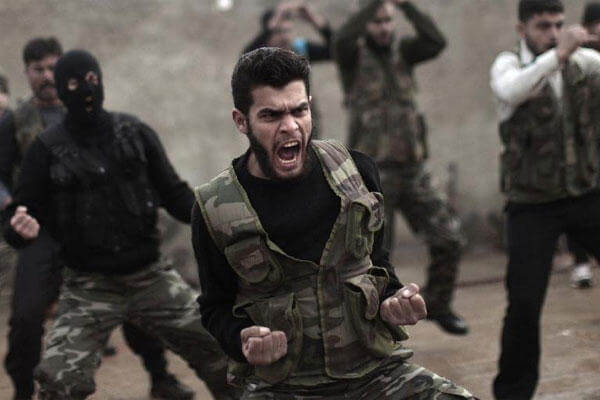The Pentagon plans to overhaul the faltering and much-delayed $500 million program for training and equipping "moderate" Syrian rebels to combat ISIS.
Pentagon Press Secretary Peter Cook said Tuesday that Defense Secretary Ashton Carter was still committed to building an independent and effective rebel force but acknowledged that the Defense Department has trouble keeping track of where the relatively few trainees have gone and what they are doing.
"We have concerns about the disposition of all these individuals, all these trainees," Cook said at a Pentagon news conference. "I can't say with specificity where they have each ended up from this podium."
"Hard questions are being asked" about the guidelines and goals the department initially established for the program, he said. "We have lessons from that, continue to learn lessons from that and we are going to continue moving forward with that program."
The program "did not launch in the way in which we would have liked," Cook said, but Carter "still believes it's important to provide support to those moderate Syrian forces."
The plans for the overhaul, first reported by The New York Times, came after numerous problems in the recruiting and vetting of volunteers for the U.S.-sponsored force that was authorized with $500 million from Congress last year.
Capt. Chris Connolly, a spokesman for the U.S. task force training the rebels, told the Times in an email, "As with any difficult endeavor, we expected setbacks and successes, and we must be realistic with those expectations. We knew this mission was going to be difficult from the very beginning."
The first group of 54 rebels trained by the U.S. met with disaster shortly after crossing from Turkey into Syria in July. Two of its leaders and several fighters were quickly captured by elements of the Al Nusra Front (ANF), a Syrian rebel group affiliated with al Qaeda. The rest of the group was later attacked by ANF and returned to Turkey.
A top U.S. commander last week took issue with describing the first effort to insert U.S.-trained rebels into Syria as a defeat.
At a Pentagon briefing, Marine Brig. Gen. Kevin Killea, chief of staff for Combined Joint Task Force-Operation Inherent Resolve, said that U.S. and coalition airstrikes on July 31 were effective "in beating back that attack by over 50 ANF soldiers."
Killea described recruiting for follow-on classes in the train and equip program as "very promising, and I think that says a lot to the program itself in -- in that, as the numbers continue, this'll be very additive to the anti-ISIL (ISIS) forces that are in northern Syria."
Pentagon officials previously have said that one of the problems in recruiting for the program was in finding volunteers committed to fighting the Islamic State of Iraq and Syria (ISIS) rather than the regime of Syrian President Bashar al-Assad.
In early July, Carter told the Senate Armed Services Committee that only 60 so-called "moderate" Syrian rebels were at that time being trained by the U.S.
"I wanted to tell the truth. The number 60, as you all recognize, is not an impressive number. The number is much smaller than we hoped for at this point," he said at the time.
The $500 million Syrian training program was intended to train and equip up to 5,400 fighters annually, with about 3,000 projected to be ready by the end of this year.
Carter said that Army Maj. Gen. Michael Nagata of U.S. Central Command, who is leading the Syrian training program, had about 7,000 potential recruits identified but "It's obviously going to take time, obviously" to vet and prepare them.
--Richard Sisk can be reached at Richard.Sisk@military.com



























